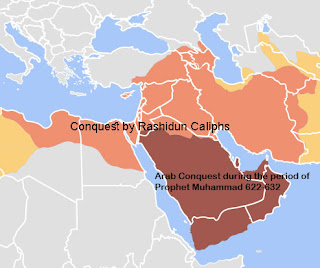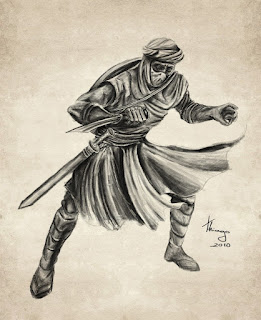He had, as was customary for Mongol Khans, several wives, but he first came up in this blog in yesterday's post when we learn that he married a princess, Kököchin, who had been chosen for Ghazan's father by Kublai Khan himself. Kököchin's journey took so long that her intended, Arghun Khan, was dead by the time she arrived, and Ghazan married her himself. (It probably pleased her that Ghazan was the same age as she.)
On the death of his father in 1291, rule of the Ilkhanate went to Ghazan's uncle, Gaykhatu. One of the innovations during Gaykhatu's reign was the introduction of paper money to the Ilkhanate, but Ghazan rejected the idea in his territory of Khorasan, because the humidity of the region made the paper unfeasible.
Gaykhatu was killed in 1295, probably by the same people who killed Ghazan's father in order to put Gaykhatu in charge. That faction chose Ghazan's cousin Baydu to take over and be a figurehead. Ghazan marched on Baydu, who after some battles offered co-rulership to Ghazan. Ghazan rejected this, but was concerned because Baydu had a much larger army.
A powerful noble named Nowruz urged Ghazan to continue to attack Baydu and become ruler. Nowruz pledged his support, but with a condition: Ghazan had to convert to Islam. The Mongol attitude toward religion was one of curiosity and tolerance. Ghazan had been raised as an Eastern Christian, and had also been tutored by a Chinese Buddhist monk. Ghazan did not hold religion as high a priority as politics, so he made the change. Their political bid was successful, and Ghazan (seen on a horse in the illustration) became the next Khan of the Ilkhanate.
The traditional Mongol tolerance for other religions went out the window. Nowruz led persecutions against Buddhists and Christians. Churches were looted and destroyed. Despite this, Ghazan was willing to work with Western Europeans against a common enemy: the Egyptian Mamluks. We will talk about those alliances tomorrow.

.jpg)





